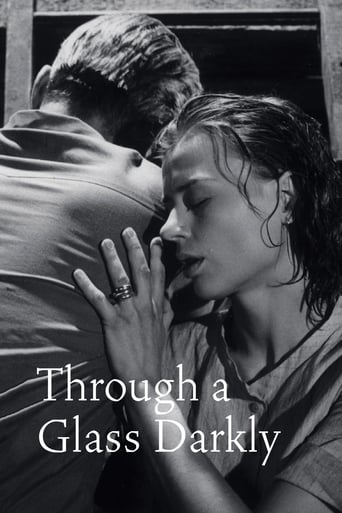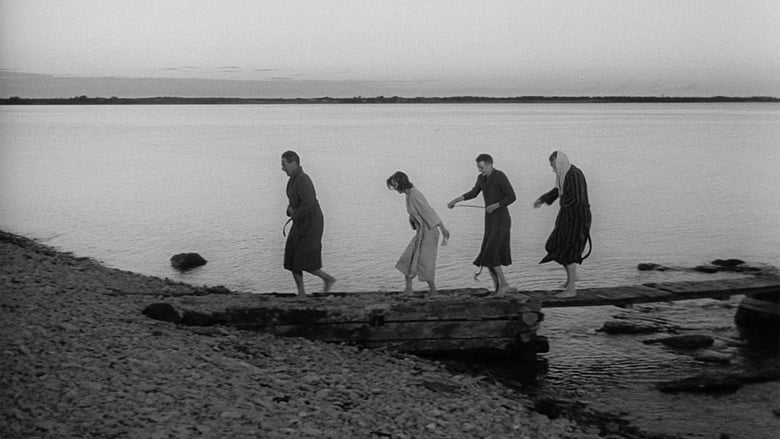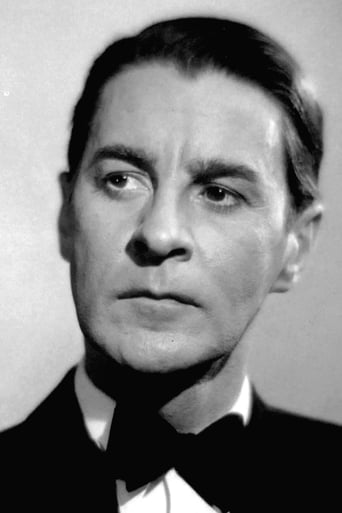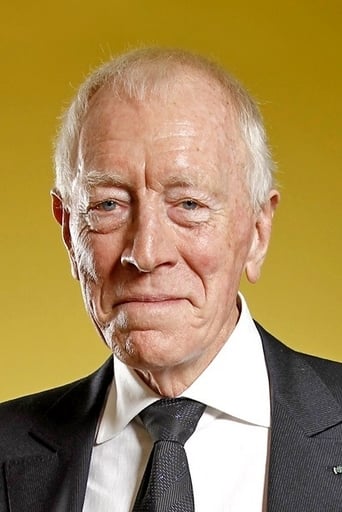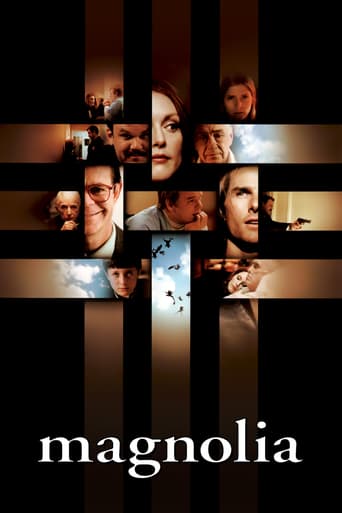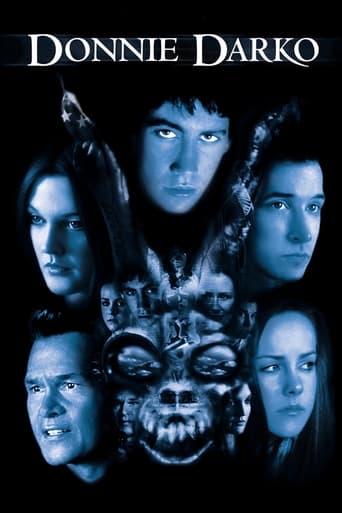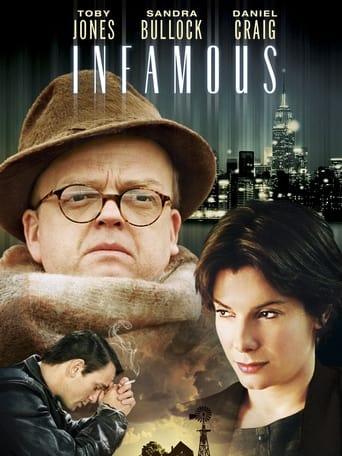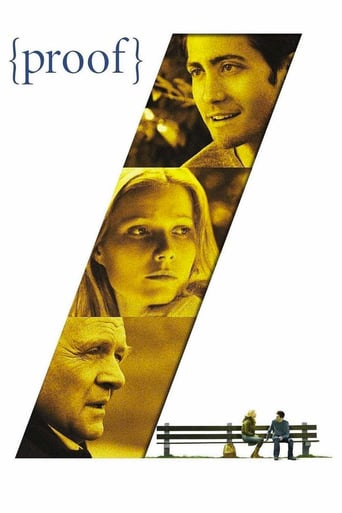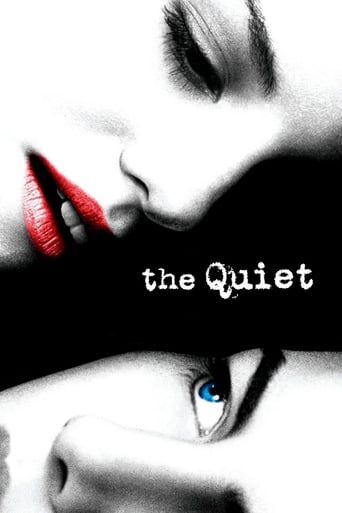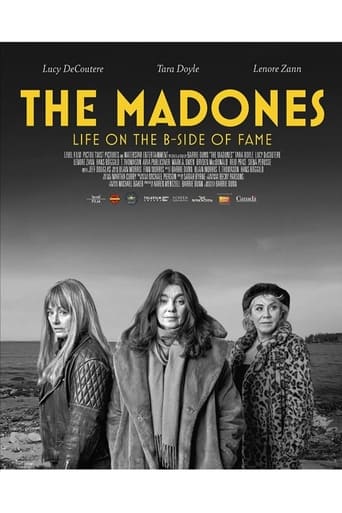Through a Glass Darkly (1961)
Karin hopes to recover from her recent stay at a mental hospital by spending the summer at her family's cottage on a tiny island. Her husband, Martin, cares for her but is frustrated by her physical withdrawal. Her younger brother, Minus, is confused by Karin's vulnerability and his own budding sexuality. Their father, David, cannot overcome his haughty remoteness. Beset by visions, Karin descends further into madness.
Watch Trailer
Cast


Similar titles
Reviews
Just perfect...
Good story, Not enough for a whole film
It's the kind of movie you'll want to see a second time with someone who hasn't seen it yet, to remember what it was like to watch it for the first time.
It’s not bad or unwatchable but despite the amplitude of the spectacle, the end result is underwhelming.
Through A Glass Darkly is written and directed by Ingmar Bergman. It's the Third film on MUBI's retrospective jaunt through his filmography that i've so far watched. The film tells the story of Karin a young woman who's recovering on a small island with her husband and family after a stay in a mental hospital. As she tries to re-establish connections with her emotionally suppressed family, she begins to disconnect with reality and starts to believe she's being visited and spoken to by god.The film centres around four main characters, Karin(Harriet Andersson), her emotionally despondent father David(Gunnar Björnstrand), her husband Martin(Max Von Sydow) who's dealing with the inevitability of Karin's diagnosis not Improving. Finally Karin's younger brother Minus, whose going through adolescence questioning everything with no emotional support from his father.Through A Glass Darkly is a beautifully shot, serene piece of film- making. The film feels sedated in an idle state of tranquillity that carries through a tinge of melancholy. This makes for a fantastic look at the human mentality in all forms. As the audience delves deeper into what makes the characters tick, we look at their fears and Insecurities. This film is one of Bergman's tightest scripts. Every character is given equal screen time to be fleshed out and developed into characters with a- lot of depth. At only eighty five minutes long, the film runs at a brisk pace and flows naturally.The film gives an honest look at mental health, and how it effects Karin and those closest to her. The fact that this film was made at a time when approach to mental health wasn't given the seriousness it has in today's society, is all the more remarkable. Whilst this film film might not be in the upper echelons of Bergman's incredible filmography. It's quiet serenity and dreamlike sensibility gives this film a powerful radiance which makes Through A Glass Darkly essential viewing in Bergman's filmography.
Ingmar Bergman I love and admire very much, and Through a Glass Darkly is another example of a brilliant film. It may not be among Bergman's finest like The Seventh Seal, Wild Strawberries, Fanny and Alexander, Cries and Whispers and Persona, but there is much to love. The cinematography as ever from Sven Nykist looks atmospheric and beautiful at the same time and the scenery likewise. Bergman's direction is as ever accomplished, allowing us to be constantly engaged no matter how bleak the story is, and this is quite an unrelenting and I think incredibly moving story. His summer images are far from the optimistic ones we are used to, but bleaker and more searching. Considering the story though, this approach was necessary I think. The music is as ever haunting, and the film is very thought-provoking, which has always been the case actually with the written quality of Bergman's films. Of the acting, Harriet Andersson has a role that is quite impossible, but she is just outstanding in it. Max Von Sydow as ever impresses with his knowing face and commanding presence, and Gunner Bjornstrand gives a performance that requires him to be morbidly curious and helpless than his somewhat droll one in The Seventh Seal and he excels here. In a nutshell, brilliant and definitely worth watching. 9/10 Bethany Cox
Bergman's Through a Glass Darkly is a step forward even from the brilliance of the Seventh Seal. In this, the first part of the Faith Trilogy, he contends with the question of God's existence and man's relationship with his fellow man once more. Here, though, instead of the cold, remote studies of his previous work, is a more intimate family saga.Of course, the very title of this work is a well-known quote from one of Paul's epistles that here, in this life we cannot yet see God clearly but have only dim reflections and impressions. Likewise, cinema can only give impressions of what life is about but Bergman captures the clearest image he can.The film begins with the reunion of an apparently happy family on a Swedish island. This setting symbolises that this is a microcosm of humanity, the surrounding waters representing perhaps a masculine world, whilst the girl is confined to the land. It is notable that it is only on the water that the father and the girl's husband can confront each other openly and confess their own flaws to each other.The daughter is, however, suffering from schizophrenia and, like many victims of this disease, believes she is seeing visions of God. However, it is a distorted, parody of God who is tormenting her. Like everyone else, she is seeing through a glass but hers is even more distorted than most. The notion that God is love is absent from her visions of this spider-like creature. It is only when she is sane and leans on her family for support is there any semblance of a normal, supportive Christian God hiding at the margins of her life.The father, a writer, seeks grandeur and critical acclaim but has so failed at his interpersonal relationships he has contemplated suicide. He has a fascination with his daughter's illness and is intent on recording it, to his own disgust. He has indeed thrown love away for temporal success.The play within a play is a beautiful one, though watched somewhat dismissively by the father. It is the only time the daughter creates an illusion of her own free will rather than being tormented by ones that are beyond her control.The fact that she is carried away by helicopter in the end perhaps indicates a transition to some higher realm. Her illness has taken complete hold of her but maybe she has now moved beyond the nightmarish stage having confronted the spider-like false god.The son, her younger brother, is then left to reconcile with the father and contemplate God's nature.Throughout the film, close-ups are filmed beautifully and truly capture the characters' thoughts and inner turmoil.As in all Bergman, the landscapes are filmed in a stark, austere manner, reflecting barren souls unable to clearly see God who is all around in their love for each other.Undoubtedly, this is one of the greatest films ever made. A true masterpiece by a great genius who captures his own spiritual searches on celluloid in an honest, mature manner.
I think this movie is really the genesis to "Persona" where he would film on the same Island, Faro, he would utilize the idea of illness (not so much convalescing but just after convalescence in a Hospital) and with a predictable manipulation of this character; however, this movie only descends into a style very later on, as we experience the beauty of this somber character, Karin, under the influence of unknown specimens.She gets the best of two worlds supposedly and purportedly, in order for us to engage. However, Bergman's dialogue in this movie is a bit more superfluous than any one I have seen in his oeuvre; it is misguiding in that sense; however it is character driven.She can't thwart her mind, so that she can be liberated from her troubles, and every drop of Rain, a Cuckoo and any solitary sound worsened her emotional state. Between the objective and the subjective - not exactly on the same thing as "Persona" however, but still similar. Minus is a Thespian Actor, Writer and Stage Writer (more allusions to Bergman's lust for art and also his installment into that artistry inventory), the brother who reads a lot and is an avid reader of the Language, but is an adolescent and a Dark and unwholesome character, whose fervor dampens their relationship, and Karin's husband is Martin (Max von Syndow from "The Seventh Seal") torn by the binds of her mind but all in all consoling her without success; she even in one scene has the inability to tell him what her Father scrolled about her (the only bit predictable in the film). Karin (Harriet Anderson) has just withdrew from a Mental Hospital and this is where we watch her unfold as a person, where everything is hid behind the shadows, and is no longer able to stay out in the sojourn island. She becomes querulous and impassioned, but determined and vulnerable; this is a complex character, with a very complex imagination and plagued by the atmosphere that she has been greeted with. There was almost a precursor to the idea that David was writing all the fantasy that was being read out from his book, not yet finished, and yet all of what was transpiring was actually true...I watched this on Film 4, as part of a Season dedicated to this wonderful Human Being and the entity that was the first recipient of the Oscar for Foreign Picture; as she disintegrates, you feel like you've disintegrated into understanding this all; it's Bergman's vivid imagination, however, very welcoming and ostracizing. By the Third Act of the movie, I was sort of out of the place, just like how Karin was as well; it is thematically celestial in it that there is a better place beyond.Bergman's cinematographer Syven Nykvist gives it a luster to that backdrop of water; I wonder if the waves crashing up and down representing peace for Bergman; he did eventually buy a house over there. There's one really startling bit where we see David, go out of control as he has no Tobacco; it's such a distinctive bit, and just like how the movie is powerfully fascinating, and it opens up the emotive of the character; however, I'm not sure why this scene was integral. The movie broadens the horizons of the Island and it also makes it the real serene area, punctuated with the problems of a torn and clinically detached Family, all looking for the way out of their deeply troubled lives. However, this time it's not as abstract as Bergman can accustom you too (only from "Persona", not really "Seventh Seal" and his other works...), however, I always felt it gave you a lurid depiction of what Family life can be like, even under the roof of such a peaceful place. They build facades around their feeling, their distinctions, their characteristics and their honesty, but all it does is tame their normality; it all comes out through Karin, and we notice that it's that place that is doing this to her and making her relapse from her incurable disease... they're sort of feeding it and rendering it incurable.However, this is a 1hr 20mins film and it throws a lot in there; it's deep, it's disconcerting, it's eerie and it's cavernous; nothing poignant, engaging or anything that people might deem "wonderful" in their emotional craving. Watch something that can elaborate on a different kind of story; a more crucially, hard hitting and it deeply disturbing movie, with a wonderful score by Erik Nordgren, that can capture your every state during the experience... it does have a lot of dialogue but I realized this was a set up for the bigger impact of a greater tragedy...

